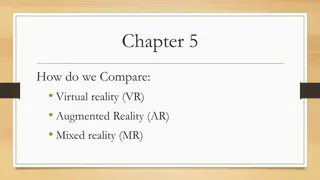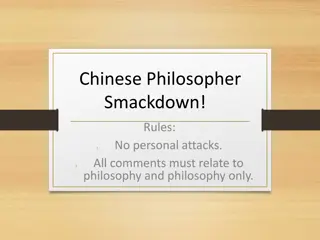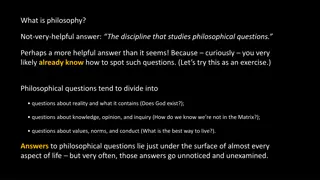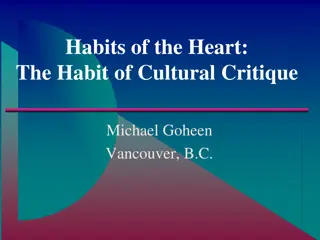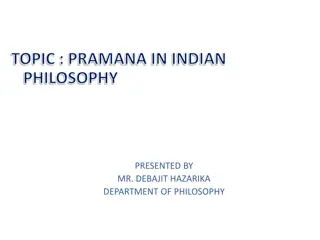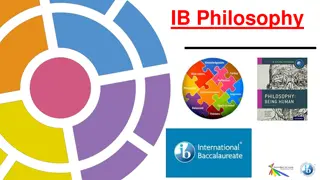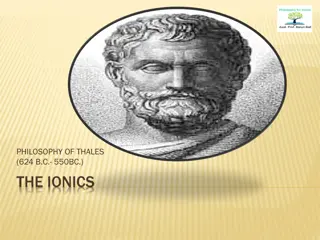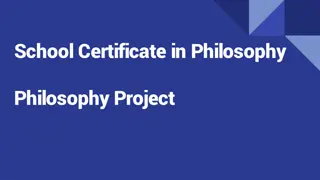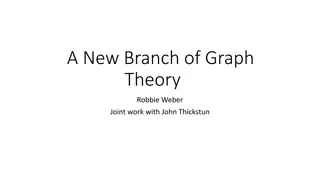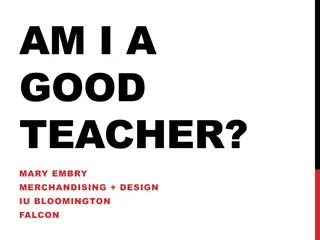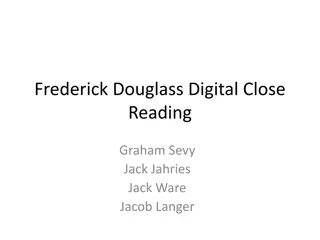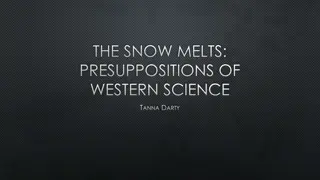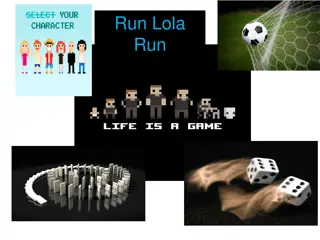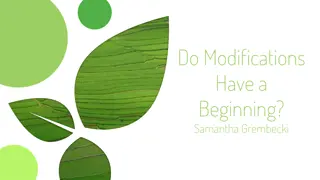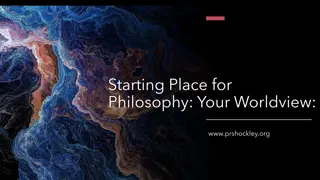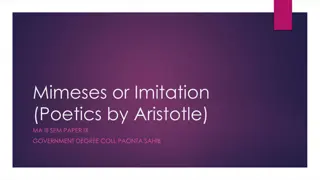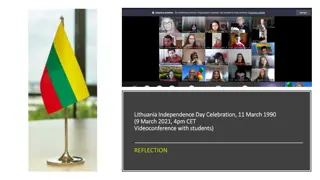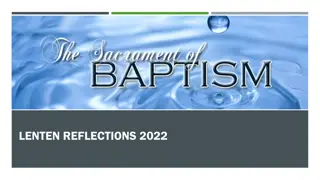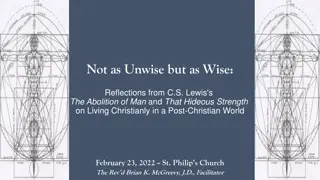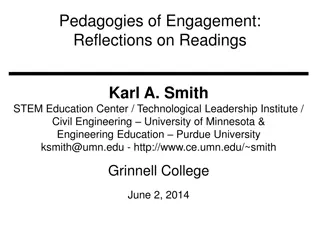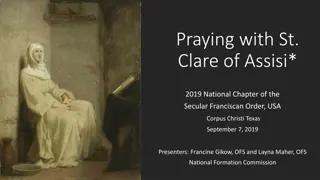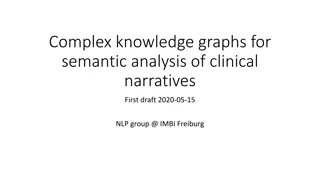Philosophical Reflections on Knowledge and Reality
The content delves into philosophical musings from renowned thinkers like Descartes, Leibniz, and Spinoza, exploring concepts such as innate ideas, geometrical truths, and the nature of philosophy itself. Through their writings, we reflect on the origins of knowledge, the interplay of sensory experience and innate intelligence, and the structure of philosophical inquiry likened to a tree with roots in metaphysics and branches in various sciences. These profound insights shed light on how we perceive, understand, and conceptualize the world around us.
Download Presentation

Please find below an Image/Link to download the presentation.
The content on the website is provided AS IS for your information and personal use only. It may not be sold, licensed, or shared on other websites without obtaining consent from the author. Download presentation by click this link. If you encounter any issues during the download, it is possible that the publisher has removed the file from their server.
E N D
Presentation Transcript
Descartes Cogito
Among my ideas, some appear to be innate, some to be adventitious, and others to have been invented by me. My understanding of what a thing is, what truth is, and what thought is, seems to derive simply from my own nature. But my hearing a noise, as I do now, or seeing the sun, or feeling the fire, comes from things which are located outside me, or so I have hitherto judged. Lastly, sirens, hippogriffs and the like are my own invention (Meditations, AT VII 37 8)
[W]e come to know them by the power of our own native intelligence, without any sensory experience. All geometrical truths are of this sort not just the most obvious ones, but all the others, however abstruse they may appear. Hence, according to Plato, Socrates asks a slave boy about the elements of geometry and thereby makes the boy able to dig out certain truths from his own mind which he had not previously recognized were there, thus attempting to establish the doctrine of reminiscence. Our knowledge of God is of this sort. (letter To Voetius, 1643. AT 8b:166f,) ( . . )
Thus the whole of philosophy is like a tree. The roots are metaphysics, the trunk is physics, and the branches emerging from the trunk are all the other sciences, which may be reduced to three principal ones, namely medicine, mechanics and morals. By morals I understand the highest and most perfect moral system, which presupposes a complete knowledge of the other sciences and is the ultimate level of wisdom. (Principia Philosophi , 9B:14)
Leibniz 28. , . - , , . : , , . . 29. , . .
Spinoza Deus sive Natura
1 - - P41 (XLI): Knowledge of the first kind is the only cause of falsity, whereas knowledge of the second and of the third kind is necessarily true P40 (XL) Note II. From all that has been said above it is clear, that we, in many cases, perceive and form our general notions: (1.) From particular things represented to our intellect fragmentarily, confusedly, and without order through our senses (II. xxix. Coroll.); I have settled to call such perceptions by the name of knowledge from the mere suggestions of experience. (2.) From symbols, e.g., from the fact of having read or heard certain words we remember things and form certain ideas concerning them, similar to those through which we imagine things (II. xviii. note). I shall call both these ways of regarding things knowledge of the first kind,
2 [ , , ] From the fact that we have notions common to all men, and adequate ideas of the properties of things (II. xxxviii. Coroll., xxxix. and Coroll. and xl.); this I call reason and knowledge of the second kind (P40 (XL)) It is not in the nature of reason to regard things as contingent, but as necessary. Proof. It is in the nature of reason to perceive things truly (II. xli.), namely (I. Ax. vi.), as they are in themselves that is (I. xxix.), not as contingent, but as necessary (PROP. XLIV). : (P44).
3o 2 This kind of knowledge proceeds from an adequate idea of the absolute essence of certain attributes of God to the adequate knowledge of the essence of things (P40 (XL)) [immediate grasp]
Locke Tabula rasa All ideas come from sensation or reflection. Let us then suppose the mind to be, as we say, white paper, void of all characters, without any ideas:- How comes it to be furnished? Whence comes it by that vast store which the busy and boundless fancy of man has painted on it with an almost endless variety? Whence has it all the materials of reason and knowledge? To this I answer, in one word, from EXPERIENCE. In that all our knowledge is founded; and from that it ultimate derives itself. Our observation employed either, about external sensible objects, or about the internal operations of our minds perceived and reflected on by ourselves, is that which supplies our understandings with all the materials of thinking. These two are the fountains of knowledge, from whence all the ideas we have, or can naturally have, do spring. (An Essay Concerning Human Understanding, Ch. 1, 2).
Knowledge then seems to me to be nothing but the perception of the connexion and agreement, or disagreement and repugnancy of any of our Ideas. In this alone it consists. [Essay IV i 2] if we will reflect on our own ways of thinking, we will find, that sometimes the mind perceives the agreement or disagreement of two ideas immediately by themselves, without the intervention of any other: and this I think we may call intuitive knowledge. For in this the mind is at no pains of proving or examining, but perceives the truth as the eye doth light, only by being directed towards it. Thus the mind perceives that white is not black, that a circle is not a triangle, that three are more than two and equal to one and two. Such kinds of truths the mind perceives at the first sight of the ideas together, by bare intuition; without the intervention of any other idea: and this kind of knowledge is the clearest and most certain that human frailty is capable of [Essay IV ii 1] Demonstrative. The next degree of knowledge is, where the mind perceives the agreement or disagreement of any ideas, but not immediately. Though wherever the mind perceives the agreement or disagreement of any of its ideas, there be certain knowledge; yet it does not always happen, that the mind sees that agreement or disagreement, which there is between them, even where it is discoverable; and in that case remains in ignorance, and at most gets no further than a probable conjecture. The reason why the mind cannot always perceive presently the agreement or disagreement of two ideas, is, because those ideas, concerning whose agreement or disagreement the inquiry is made, cannot by the mind be so put together as to show it. In this case then, when the mind cannot so bring its ideas together as by their immediate comparison, and as it were juxta-position or application one to another, to perceive their agreement or disagreement, it is fain, by the intervention of other ideas (one or more, as it happens) to discover the agreement or disagreement which it searches; and this is that which we call reasoning. [Essay IV ii 2-7]
. : Simple ideas: Ideas of sensation Ideas of reflection Complex ideas: Composite ideas of unitary things: Ideas of modes: Ideas of simple modes Ideas of mixed modes Ideas of substances Ideas of relations External Objects furnish the Mind with the Ideas of sensible qualities [ ] the Mind furnishes the Understanding with Ideas of its own Operations [ ] These, when we have taken a full survey of them, and their several Modes, Combinations, and Relations, we shall find to contain all our whole stock of Ideas; and that we have nothing in our Minds, which did not come in, one of these two ways (Essay II.i.5: 106)
( Locke) So that if any one will examine himself concerning his Notion of pure Substance in general, he will find he has no other Idea of it at all, but only a Supposition of he knows not what support of such Qualities, which are capable of producing simple Ideas in us; which Qualities are commonly called Accidents. If any one should be asked, what is the subject wherein Colour or Weight inheres, he would have nothing to say, but the solid extended parts: And if he were demanded, what is it that Solidity and Extension adhere in, he would not be in a much better case than the Indian before-mentioned [the reference is to E II.xiii.19]; who, saying that the World was supported by a great Elephant, was asked what the Elephant rested on; to which his answer was, a great Tortoise: But being again pressed to know what gave support to the broad-backed Tortoise, replied, something, he knew not what. (Essay II.xxiii.2: 295f)
Berkley esse est percipi It is indeed an opinion STRANGELY prevailing amongst men, that houses, mountains, rivers, and in a word all sensible objects, have an existence, natural or real, distinct from their being perceived by the understanding. But, with how great an assurance and acquiescence soever this principle may be entertained in the world, yet whoever shall find in his heart to call it in question may, if I mistake not, perceive it to involve a manifest contradiction. For, what are the fore-mentioned objects but the things we perceive by sense? and what do we PERCEIVE BESIDES OUR OWN IDEAS OR SENSATIONS? and is it not plainly repugnant that any one of these, or any combination of them, should exist unperceived? (A Treatise Concerning the Principles of Human Knowledge, 4)
But say you, though the ideas themselves do not exist without the mind, yet there may be things like them whereof they are copies or resemblances, which things exist without the mind, in an unthinking substance. I answer, an idea can be like nothing but an idea; a colour or figure can be like nothing but another colour or figure (A Treatise Concerning the Principles of Human Knowledge, 8)
Hume : feeling thinking the faint images of [the impressions] in thinking and reasoning (T 1.1.1.1/1) : ) original impressions (from sensation: five senses, pleasures and pains ) (secondary) impressions of reflection [desires, emotions, passions, and sentiments] All our simple ideas in their first appearance are deriv d from simple impressions, which are correspondent to them, and which they exactly represent. (T 1.1.1.7/4)
An object precedent and contiguous to another, and so united with it, that the idea of the one determined the mind to form the idea of the other, and the impression of the one to form a more lively idea of the other. (T 1.3.14.31) When the mind, therefore, passes from the idea or impression of one object to the idea or belief of another, it is not determin d by reason, but by certain principles, which associate together the ideas of these objects, and unite them in the imagination. (T. 1.3.6.12) , a priori it implies no contradiction that the course of nature may change, and that an object seemingly like those which we have experienced, may be attended with different or contrary effects. (E. 4.2.18)


